
***Continued from Chapter 01 (Covered previously: Virtual Teams- Meaning & Interpretation, Trust in Remote Teams, Affective & Cognitive Trust)
Link to Chapter 01:
Building of Affective Trust In Remote Teams
01: Prioritize On Boarding More Than We Usually Do:
According to research, affective trust tends to be more important to foster at the beginning of a relationship. Accordingly, on boarding well becomes even more paramount for virtual team building. A few key elements for remotely on boarding the team may include:
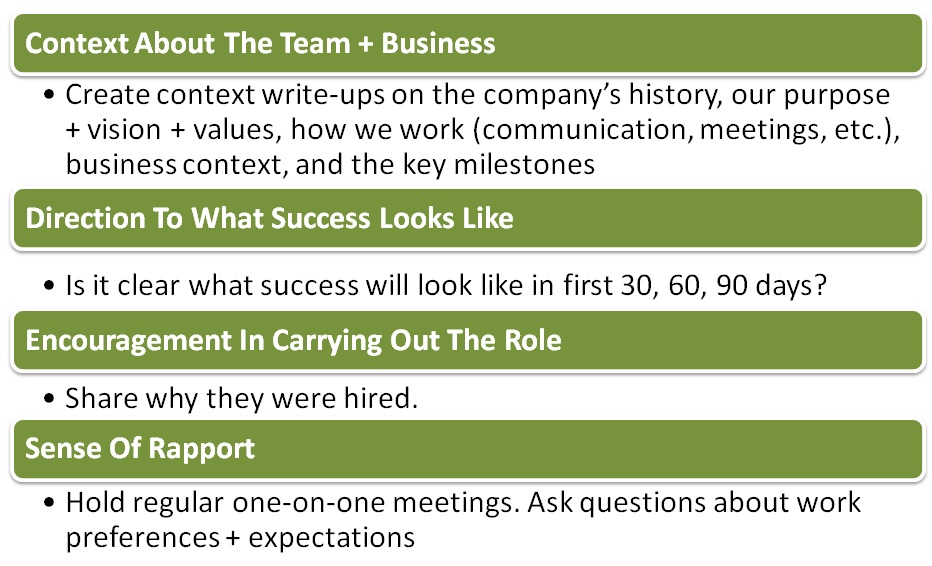
02: Avoid Cliché Icebreakers.
How often do we find ourselves asking “How was your weekend?” to break the ice before the start a meeting? Their answers to this question feel worn, tired, and un-engaging.
To shift the mood for the team and build affective trust, we will want our virtual team building to focus on non-cheesy icebreakers. Cheeky, enlivening icebreaker questions can reveal something new and intriguing about the person you might not have known before.
03: Have A Buddy System
An excellent way that remote companies can build affective trust is to build a buddy system as part of their virtual team building. In the team, here are two ideas we could try to put a buddy system into practice:
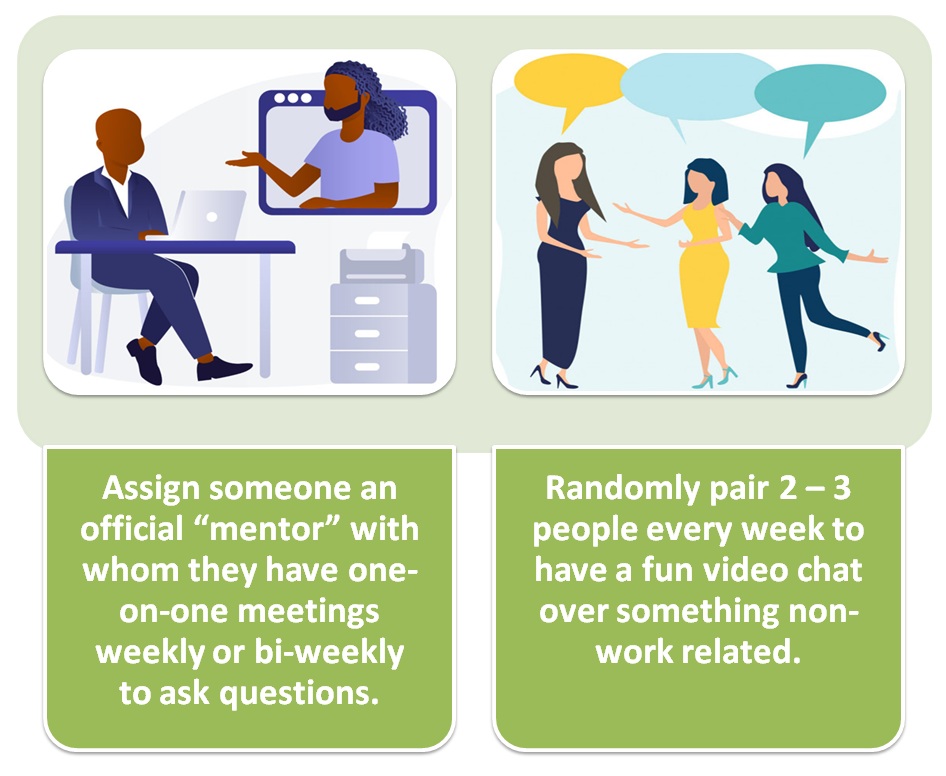
04: A Dedicated Channel For Non-Work Related Conversations:
A place for “watercooler chat” is a real requirement to building the affective trust a team needs to thrive. Some examples of non-work related chat channels may be:
- “Good morning” chatter in the mornings when we hop online.
- Having a pets channel in Slack and asking everyone to share their pet pictures.
- Questions to know each other better and to uncover unlikely connections.
05: Give Opportunities For Non-Work Related Video Chats:
Text Chat is nice… But there’s nothing like getting to see folks’ facial expressions and hear them laugh, when it comes to building affective trust. As a result, video chats would be a key part of how we do virtual team building.
One thing to be wary of if we decide to do this is that people may be severely burnt out on being on video meetings all day. They may not be eager to engage in yet another video meeting, even if the topic itself is fun.
Building of Cognitive Trust In Remote Teams
If affective trust is all about the “heart” – the emotional closeness and rapport someone feels – then cognitive trust is as all about the “head.” Cognitive trust stems from believing in the reliability and capabilities of someone else. Cognitive trust is quite easy to forget – and yet, it yields tremendous results. Studies have found how cognitive trust tends to have a stronger correlation with leadership effectiveness.
01: Willingness To Show Vulnerability As A Leader:
Being vulnerable and admitting our shortcomings as a leader aids to build trust. Vulnerability around our weaknesses and mistakes demonstrates empathy. The more empathetic someone is, the more likely they were to trust them. To put this into practice, we can try saying something like:“I feel like the X project I’m overseeing is not going as well as I would like… might you have any advice?”
02: Make our Intentions Crystal Clear:
Making our intentions behind our actions clear is one of the most effective way to build trust. This means being open about why we are saying something, why decisions are made and why some decisions are not made. When we are opaque about why we are changing our mind or choosing to sit on something for a while, it destroys the trust someone has of us. For example, when we need to give someone tough feedback, if we make our intentions clear, they are most likely to trust and be open to hearing that feedback.
03: Walk The Walk- Follow Through On Commitments:
This seems to be especially powerful. How clear are we demonstrating that we are following through on our commitments? During one-on-one (or) all-team meetings, try saying: “Based on the feedback, I’m changing X. How does that sound?”
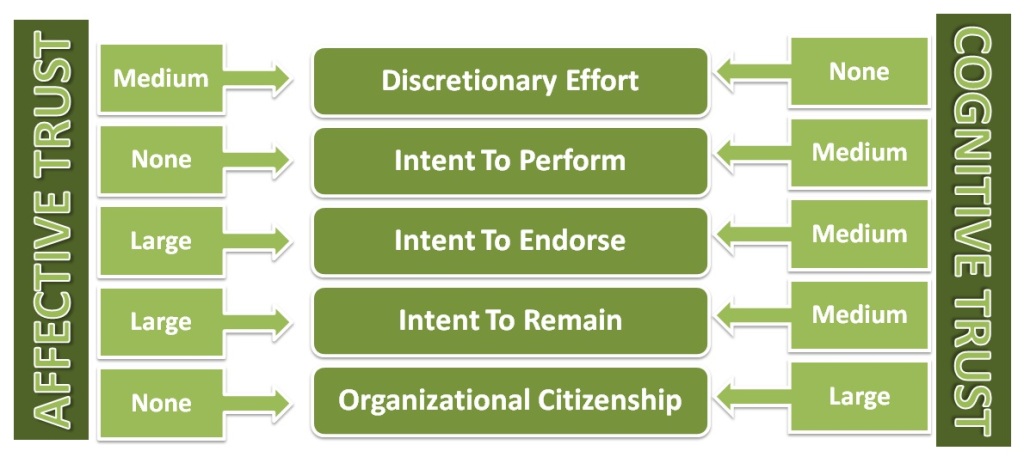
What Is Psychological Safety?
Every person in every organization creates a psychological zone around them. This zone influences how those around them think and feel. Those that can increase feelings of safety can also significantly strengthen their team’s performance. A person’s ability to create psychological safety is a learnable skill. As one focuses on improving their emotional intelligence, their ability to influence their team and organization’s psychological safety will improve.
Psychological safety is a shared belief that the team is safe for interpersonal risk-taking. In psychologically safe groups, team members feel accepted and respected — safety increases when the four quadrants below thrive.
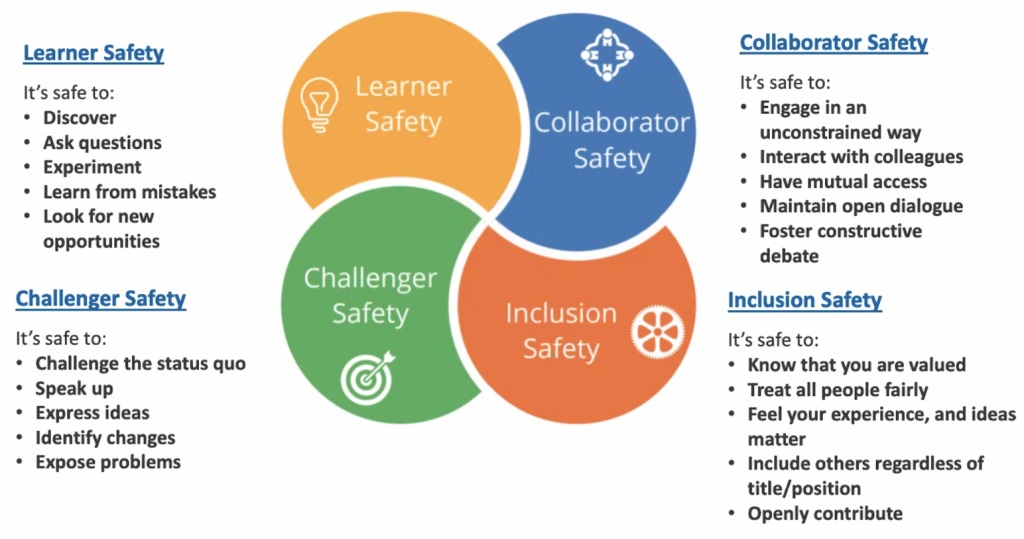
The Impact Of Psychological Safety
To enhance challenger safety, individuals in a group need to know that they are safe to express challenging ideas. A person who knows that they need to work on self-awareness could increase challenger safety by deliberately growing in awareness of stressful situations. For example, if individuals know they are working with someone they find challenging, they need to be mindful that they have a bias to remain open-minded.
Something as simple as taking the time to notice and name stressful emotions can yield real benefits. When one names a stressful feeling, that emotion becomes less intense. Naming a stressful emotion creates a distance from that emotion and allows an individual to relax intentionally.
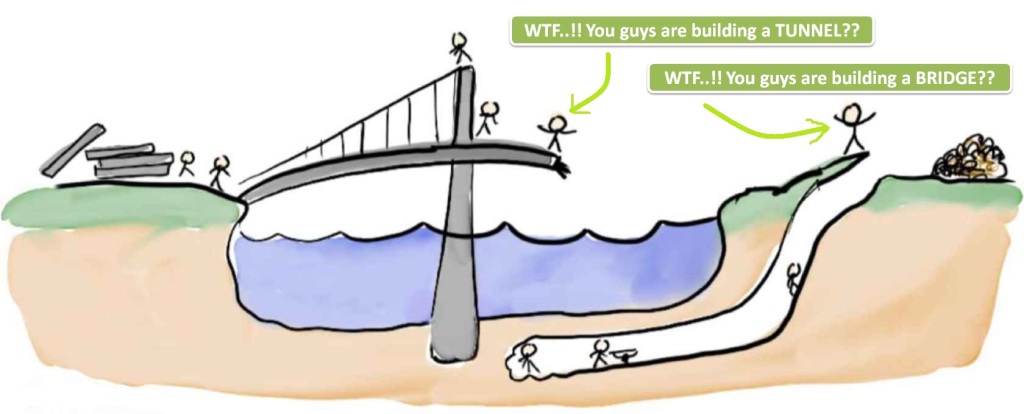
At the heart of all this is building an awareness of one’s role in creating trust and psychological safety. Without intentionally creating new patterns, the brain will fall back on old patterns of behavior. It is up to individuals to decide to become a better version of themselves. Beneath the surface of wanting our team to “feel good” is a deeper desire for our teams to trust our intentions, and trust that we will act on them. If we can focus on building affective and cognitive trust – and not merely the vanity of how many people are showing up to a Zoom happy hour – our deepest desire for true team building can become a reality.
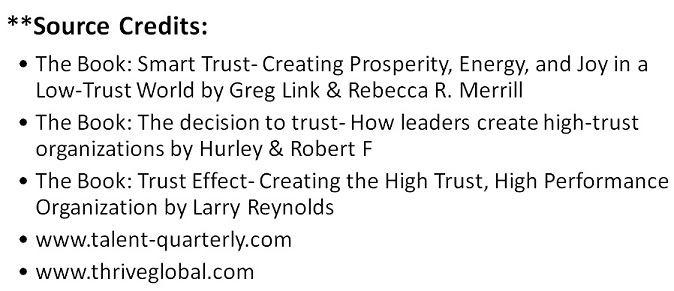
Content Curated By: Dr Shoury Kuttappa

